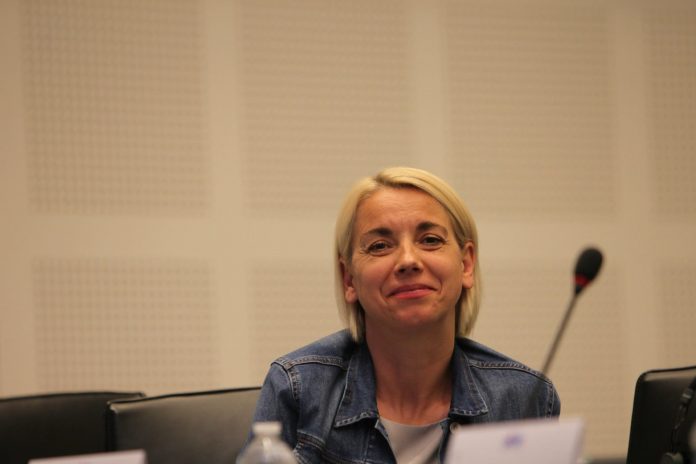The Committee on Women’s Rights and Gender Equality (FEMM) has adopted the draft report of Angelika Mlinar MEP (NEOS, Austria), taking stock of the state of play inside the Parliament on promoting and achieving gender mainstreaming, both in its administration and at the political level. ALDE’s aim is to improve gender balance in staff and management and to ensure that all EP policies are gender sensitive.
The draft report assesses progress made over the last two years (since the previous report on gender mainstreaming was adopted), and it welcomes all the achievements and underlines the shortcomings. The document also gives concrete recommendations on how to further improve the situation, including some recommendations for the 2019-2024 parliamentary term. The report was adopted in Committee by 19 votes in favour to 6 votes against with no abstentions and will make its way to the EP plenary in December.
“Gender equality in the work of the EP is the goal – gender mainstreaming is the strategy. As the Standing Rapporteur for the Gender Mainstreaming report I call on the EU to integrate gender perspectives to every aspect of policy making – preparation, design, implementation, monitoring and evaluation of policies, legal measures and spending programmes. And also to actively include the representation of people of all gender identities in these policy areas. Equality between women and men is recognized by the EU as a fundamental right. It is a common value of the EU and a necessary condition for the achievement of the Union’s objectives of economic growth, employment and social cohesion” said Mlinar after the vote.
Mlinar also had a message to the political parties. She expressed her concerned that although the population of the EU consists of half of women and half of men, the composition of the European Parliament does not mirror this balance – as only 36.1 % of MEPs are female. She therefore encourages the European political parties and their party members to ensure a gender balanced representation of candidates for elections to the European Parliament in 2019 by means of zipped lists or other methods such as parity lists. Gender balance and diversity of MEPs increase the level of democratic representation of EU citizens and the legitimacy of Parliament’s decisions.

